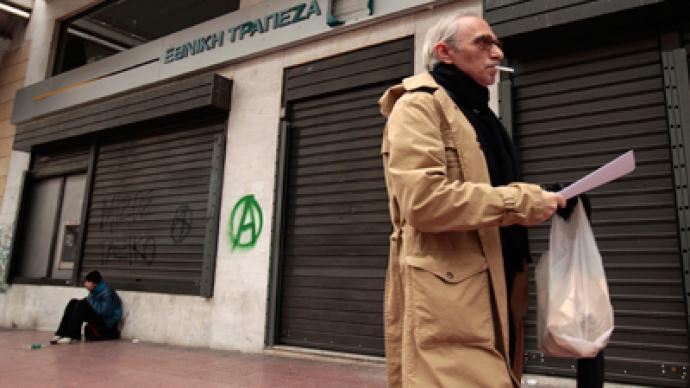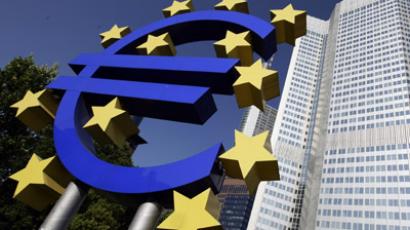Trillion euro price tag for Greek default

While international financial bodies are pouring money into the seemingly bottomless financial pit of Greece, the International Institute of Finance (IIF) is calculating the losses from a possible Greek default. The price is above €1 trillion.
Should the widely discussed and anticipated Greek default finally take place, the shock waves would spread to many economies across the worldOn top of direct losses from the €73 billion debt holdings Greece itself would suffer, there are additional potential losses by the ECB of €177 billion – more than double the bank’s capital base, the IIF adds. The effects of a Greek default would undermine the credibility of other European states. Investors would ask for higher yields on debt obligations of such countries as Portugal, Ireland, France and Belgium. To compensate, the European banking system alone would need around €160 billion in “buffer” money. Indirect losses resulting from a slower Euro Area and unpaid taxes, would also be tremendous. A 1% drop in GDP that the Euro Area might suffer from a disorderly Greek default would cost around €100 billion. And a 1% slower Euro Area economy would create additional €90 billion loss elsewhere, the IIF said.A recognition of its own insolvency by Greece would affect not only close neighbors in the Euro Area including Central and Eastern Europe, and some Nordic countries, but also more distant states such as China, India and Brazil – big exporters to the eurozone. China exports to the Euro Area comprise around 4% of its GDP, while for India and Brazil the figure stands at 2%.The mess from a Greek collapse would mean not just economic headaches but administrative ones as well. In a vicious circle, the latter could trigger another round of financial unrest. Any member’s exit from the Euro also requires leaving the EU. Since the Lisbon Treaty, which forms the constitutional basis of the EU, does not provide for an exit from the Euro Area, negotiating changes to the document would take time, “during which financial markets will be driven by panic capital flights, spreading contagion to the rest of Europe and the global economy,” the IIF explains.The true damage from a Greek default is very difficult precisely to calculate, the institution concludes.The collapse of Lehman Brothers marked the beginning of the current economic unrest in August 2008. While Lehman Brothers was by far smaller that Greece, and its fall anticipated and priced back in 2008, the effects are still at play today around the world.














